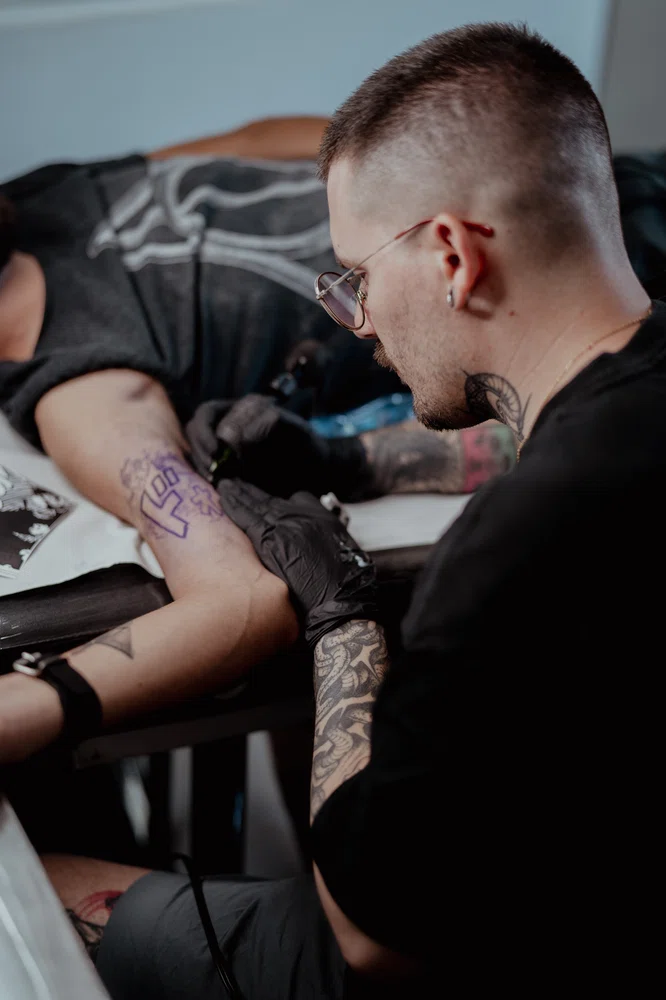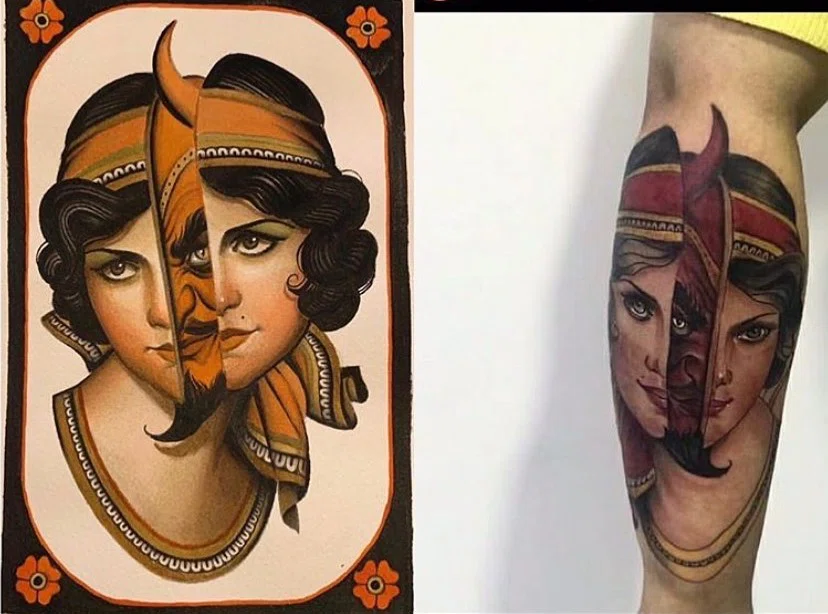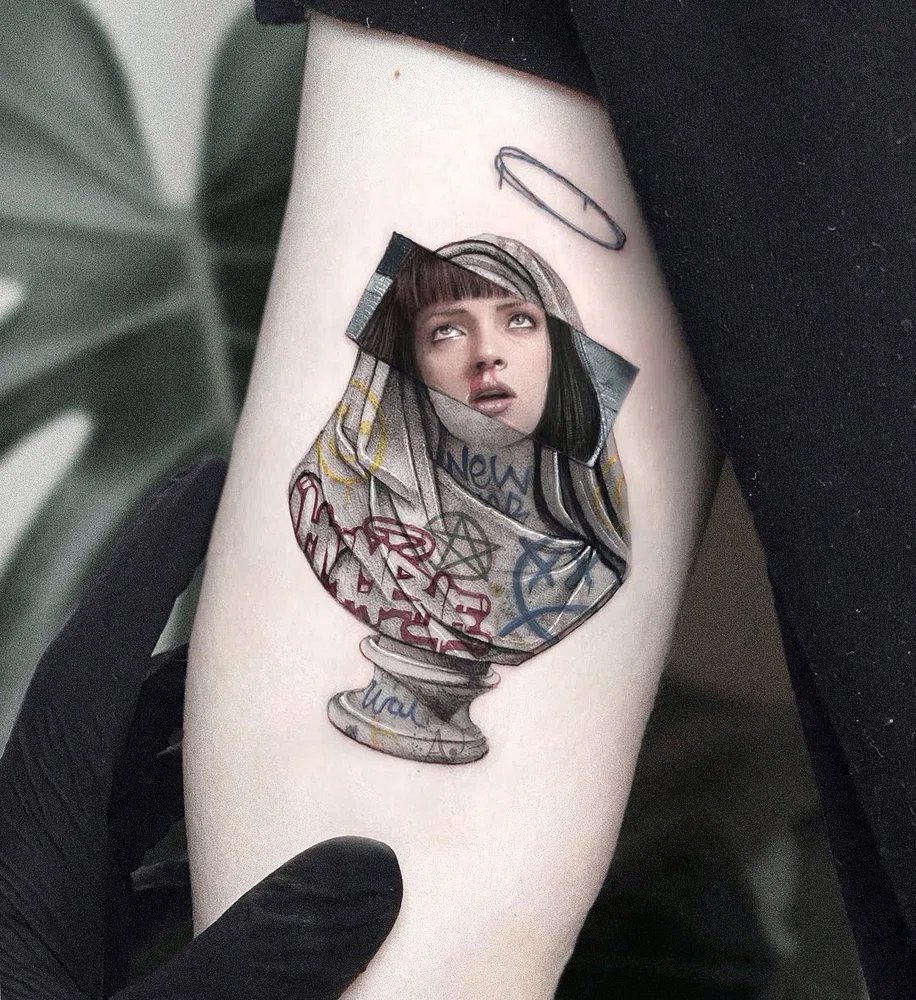How to say no to a tattoo you don't want to do?
The most rejected tattoo designs and tips to know how to say no
14 July 2023
Turning down a client or giving up a job can indeed be one of the most difficult situations to face as a tattoo professional. While setting limits may be simple for some, it can become a significant challenge for others.
There is a common belief that a “good professional” should always be accommodating and available to any client. However, there are situations where it may be necessary to reject clients for various reasons.
Discussing the topic of saying no is not usually emphasized, but it is crucial to have open discussions about it among colleagues.
As a tattoo artist, you offer a service, but it does have its limitations. It is essential to identify what types of tattoos you enjoy doing, what falls within your expertise, and what is outside of your comfort zone.
Although saying "no" can be uncomfortable, it should not intimidate you. In the following tips, we will provide guidance on how to handle such situations respectfully.
The importance of saying 'no' as a tattoo artist
As a tattoo artist, you can choose which tattoo designs you accept.
You must feel comfortable and confident with the work you are creating, since your name and reputation are closely tied to your art.
There is a misconception that you must always try to please every customer, regardless of the circumstances. However, this belief is mistaken. Constantly striving to please everyone often leads to the opposite effect, resulting in dissatisfaction and rejection.
It is impossible to please everyone, and it is unrealistic to think that you can accommodate every tattoo request that comes your way.
Saying no allows you to clearly define your values and showcase the skills you can offer.

Engaging in this selection process is crucial for professional growth, allowing you to develop a unique style and personality in your work. While it can be challenging when starting out and eager to learn, remember that you always have the right to decline a tattoo if you're not comfortable with it, regardless of your experience level.
The reasons why you can reject them are many, from designs with offensive content, tattoos that do not represent you in your personal hallmark or styles and techniques that you don't know how to master.
Whatever the situation, it is better to decide honestly and assess whether it is within your means to be able to do them or not.
But let's review some frequent situations in which many tattoo artists tend to say no.
Designs that tattoo artists often reject
While preferences and limits may vary from person to person, certain situations can, unfortunately, lead you to turn down a job. Some common examples include:
1- Offensive or inappropriate content.
Many refuse to tattoo images or words that are discriminatory, racist, sexist, violent or hateful. These designs go against personal values and can cause social controversy and even legal problems.
No right should be violated or mocked with tattoo designs, so it would be a good word for you if you reject them. Remember that you are not obliged to please everyone, sometimes rejecting a design is preserving your integrity and your work.
2- Exact copies of works by other artists.
Respecting the artistic integrity of colleagues is one of the most sacred pillars of this profession, and you must refuse to copy another person's work without their consent.

Instead, you can suggest modifications or create an original design based on the client's idea. Never copy someone else's work. That will not only speak badly of you, but you may also fall into legal trouble for issues of copyright and copycat.
Be prudent and do not do what you would not like them to do with you.
3- Tattoos in high-risk areas.
Some areas of the body can be highly dangerous to tattoo, and not everyone can do it. Such as tattoos on the eyelids, on the tongue, in the genital area and even eye tattoos.
This work must be carried out exclusively by specialized and instructed people. Under no circumstances should people with little experience do it because they can cause serious injuries that lead to health problems.
The tattoo must be taken with the seriousness and responsibility that corresponds. If a client comes to you for any of these jobs, honestly check your skills, your background in the subject, and your experience, and seriously reconsider whether you can do it.
Never jump into something you're unsure about, and don't play with someone else's body.
4- Designs outside your speciality.
Hand in hand with the above, it is essential to emphasize that everyone has their own style and speciality.
Some may be experts in Realism, while others prefer the Traditional, Geometric, Oriental, etc. style. If you don't feel confident and knowledgeable enough to tackle a particular style, it's better to say no.

As seen in the article Styles not recommended for beginners, techniques like Realism require great knowledge and are not suitable for beginners. Therefore, it's beneficial to gradually develop your own tattoo style and specialize in a specific type of work.
You will see that a good tattoo artist does not need to be an expert in all areas, sometimes it is better to choose one and spend all your time specializing and perfecting yourself in it.
Remember a universal, but very useful rule: the more you want to cover, the less efficient your work is.
Ways to say no without being offensive
1- Be honest, but kind.
Explain your position clearly and politely. Whatever the situation, it is not necessary to lose respect to raise your position.
You can say, "I appreciate you considering me for your tattoo, but after reviewing the design, I don't think I can figure it out in the best way."

2- Explain your limitations.
If you have restrictions on tattoo styles or if there are certain designs that you are not comfortable with, you can mention these limits. There is no problem with it!
For example, you could say, “I specialize in other styles, and I don't think I can do this design in the best way. I think it would be better to find another tattoo artist with more experience in that style.”
3- Offer alternatives.
If possible, suggest other options so that the client can find someone more qualified. This point is key since you will not only look good with them but also with your colleagues. Understanding your limitations is crucial.
4- Point out the connection between the artist and the client.
You can explain that it is essential that the client feels comfortable with the tattoo artist and that you both share the artistic vision.
A tattoo is a very personal expression, and if you don't feel represented or enthusiastic about the design, the client will probably notice that it is better to step back and offer other alternatives.
Here are some helpful tips, but remember that everyone's journey is personal and situations can vary greatly. You'll need to come up with your own approaches in different situations.
Remember to be responsible and respectful when rejecting a client, and never stop offering other alternatives if you think it is appropriate.
If you want to learn more about tattooing and specialize in some styles, have a look at our comprehensive courses, where you learn all the methodology and techniques that a tattoo artist needs.